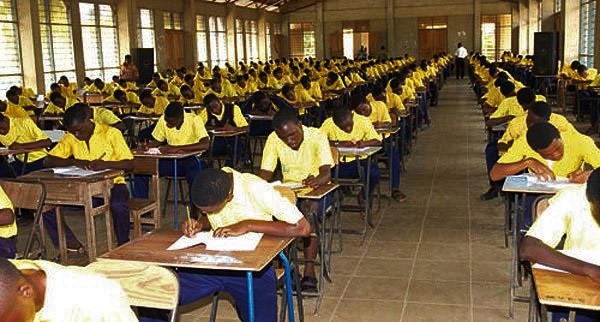The Deputy Director for Institute for Teachers and Continuous Development, Dr. Samuel Ofori Bekoe has called for a change in the model by which students are assessed in examinations.
This comes on the back of Corruption Watch’s report which uncovered a grand scheme of examination malpractices in the 2021 WASSCE.
Speaking on Joy FM's Super Morning Show on Thursday, Mr Bekoe said “our whole outlook of examination and what we deem it as, especially the WASSCE and BECE referred to as high stake exam, which is used to determine the life progress of a student” have contributed to the high incidence of malpractice.
“We also have this situation where the examination is being used to select more or less the good students from those who are not achieving. Those who are deemed to have achieved are pushed forward unto the next level and if we have more students going through this process and yet very few are going to be selected, then you know the pressure that you’ve brought to bear,” he said.
According to him, another reason is due to the accountability system where teachers' professional status is measured as a result of their student’s exam performance and therefore are forced to go above and beyond to ensure their students perform well.
He added that the desire to know what will be on the exam paper in order to memorize and produce when needed in the exam, contributes to the rising rate of exam malpractices.
Based on the listed points he called for a change in the assessment model in order to reduce exam infractions.
Among others, he suggested that the students should be accessed authentically.
Explaining what he meant by authentic assessment, he said “authentic assessment by its nature in itself talks about assessment by students and teachers themselves and sometimes by practice where students themselves are part of determining how they have to be assessed and what to be assessed on.”
He also proposed that the marking schemes should be discussed with students prior to the examination.
“When we make things transparent to students it reduces anxiety and once the examination anxiety is reduced the urge to resort to examination malpractice will automatically go down,” he said.
Latest Stories
-
MTN FA Cup: Dreams FC beat Soccer Intellectuals to make semis
27 mins -
Ayorkor Botchwey champions transformative investment, trade agenda
35 mins -
KNUST, University of Rwanda share experiences in implementation of Mastercard Foundation Scholars Program
1 hour -
Top 10 most visited tourist sites in Ghana 2023
1 hour -
Cecilia Dapaah case: I will reopen investigation into alleged acts of corruption – Mahama
2 hours -
GRA boss charges customs officers to be professional ahead of 2024 general elections
2 hours -
NPP thanks stakeholders for successful Ejisu by-election
2 hours -
Bawumia promises to involve chiefs in licensing miners if elected President
2 hours -
Koda should have visited the pastor to avert the prophecy – Ajagurajah
2 hours -
Emotional support alligator taken and released in swamp
2 hours -
A mate is a mate, Bawumia can’t be in the driver’s seat – NDC Communicator
2 hours -
Over 400 million Google accounts have used passkeys, but our passwordless future remains elusive
2 hours -
Kwame Nkrumah Memorial Park surpasses Aburi Gardens as most visited site in 2023 – GTA
3 hours -
Third IFC EDGE Students Design Competition opens in Ghana
3 hours -
Baidoo: Disgraceful maltreatment of the Black Princesses must stop
3 hours

